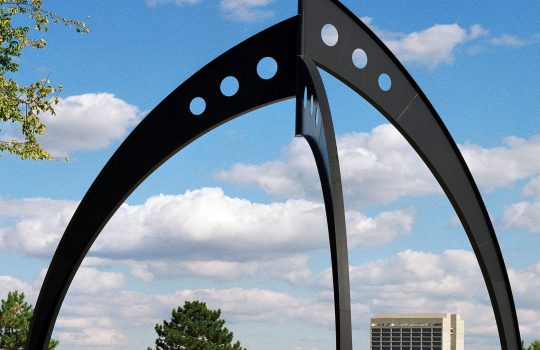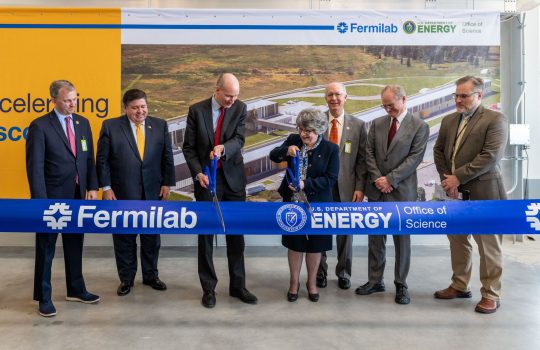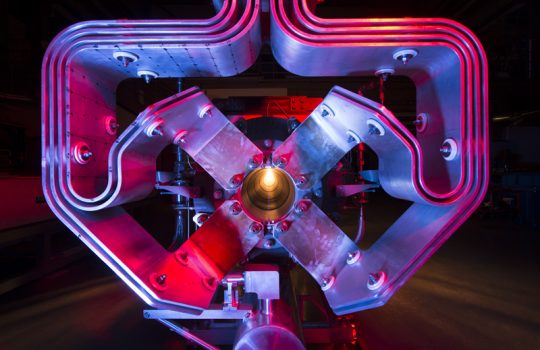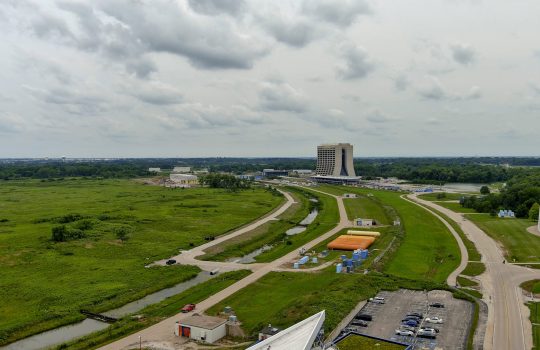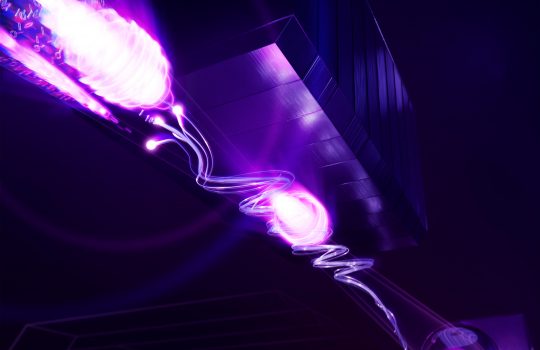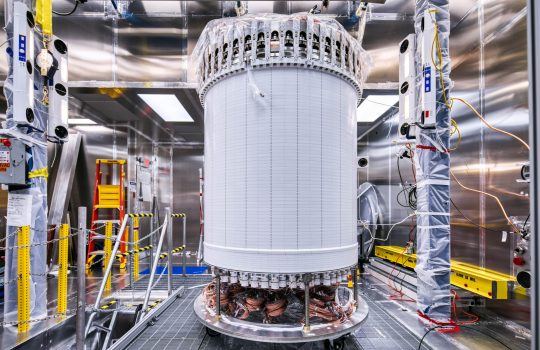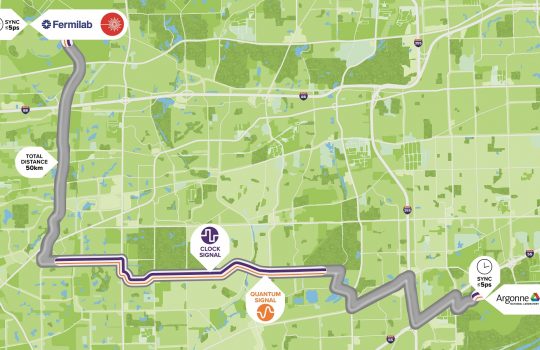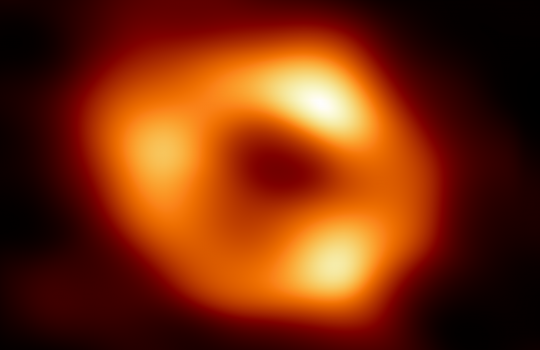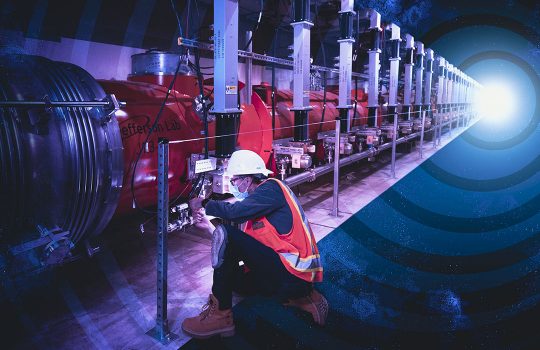Visiting Fermilab will require REAL ID-compliant identification, beginning May 3, 2023
Beginning May 3, all visitors to Fermilab must show REAL ID-compliant identification to access the public areas.
Fermilab’s baby bison season begins
The first newborn calf of spring was born on April 13, signaling the start of Fermilab’s baby bison season.
DOE Deputy Secretary Turk, Gov. Pritzker, local legislators unveil new buildings to advance science at Fermilab
On April 13, Gov. Pritzker and other local legislators joined DOE officials at Fermilab for the “Building Fermilab’s Future” event, which marked the opening of the IERC and PIP-II Cryoplant buildings and the groundbreaking for the Linac Complex.
A new way to explore proton’s structure with neutrinos yields first results
For the first time, particle physicists have been able to precisely measure the proton’s size and structure using neutrinos with data gathered from thousands of neutrino-hydrogen scattering events collected by MINERvA, a particle physics experiment at the U.S. Department of Energy’s Fermi National Accelerator Laboratory.
Fermilab receives Inflation Reduction Act funding
The U.S. Department of Energy allocated funds to its 17 national laboratories from the Inflation Reduction Act to mitigate the rise of project costs as a result of inflation. Fermilab will spend the funding on the lab’s on-going construction projects. This will allow the lab’s major projects to uphold their schedules and keep their commitment to international collaborators.
First demonstration of a new particle beam technology at Fermilab
Scientists successfully used a new technique to cool a particle beam and make it denser. The new method may enable future experiments to create more particle collisions. Denser particle beams provide researchers a better chance of exploring rare physics phenomena that help us understand our universe.
Berkeley Lab researchers record successful startup of LUX-ZEPLIN dark matter detector at Sanford Underground Research Facility
Lawrence Berkeley National Lab has passed the startup operations phase and delivered first results of the LUX-ZEPLIN (LZ), the world’s most sensitive dark matter detector.
Quantum network between two national labs achieves record synch
Quantum collaboration demonstrates in Chicagoland the first steps toward functional long-distance quantum networks over deployed telecom fiber optics, opening the door to scalable quantum computing.
Astronomers reveal first image of the black hole at the heart of our galaxy
Astronomers have unveiled the first image of the supermassive black hole at the center of our own Milky Way galaxy. This result provides overwhelming evidence that the object is indeed a black hole and yields valuable clues about the workings of such giants, which are thought to reside at the center of most galaxies.
SLAC’s superconducting X-ray laser reaches operating temperature colder than outer space
The facility, LCLS-II, will soon sharpen our view of how nature works on ultrasmall, ultrafast scales, impacting everything from quantum devices to clean energy.

